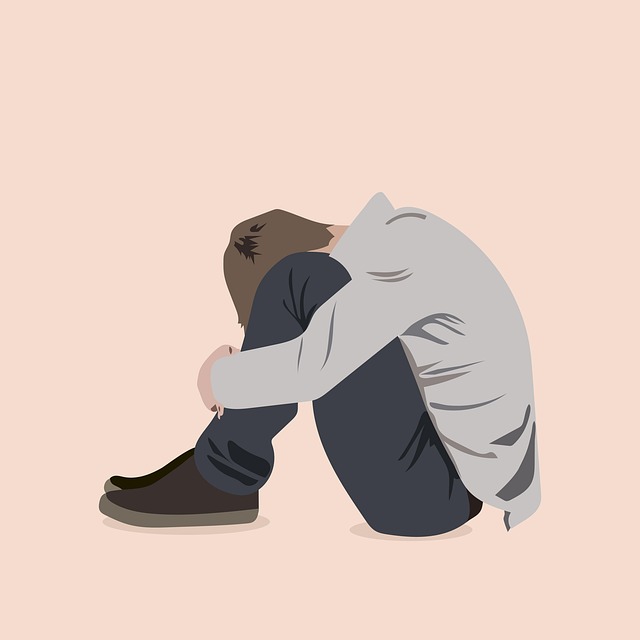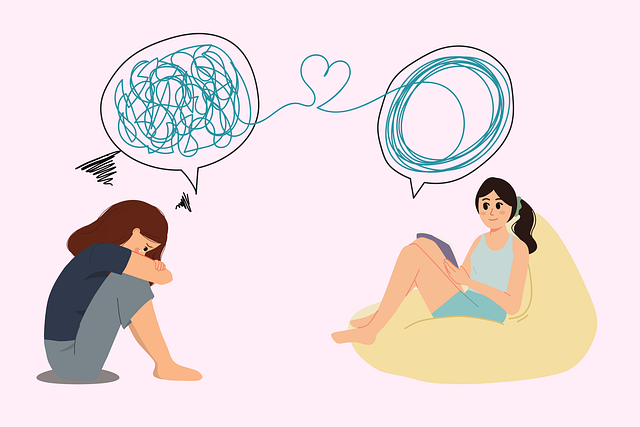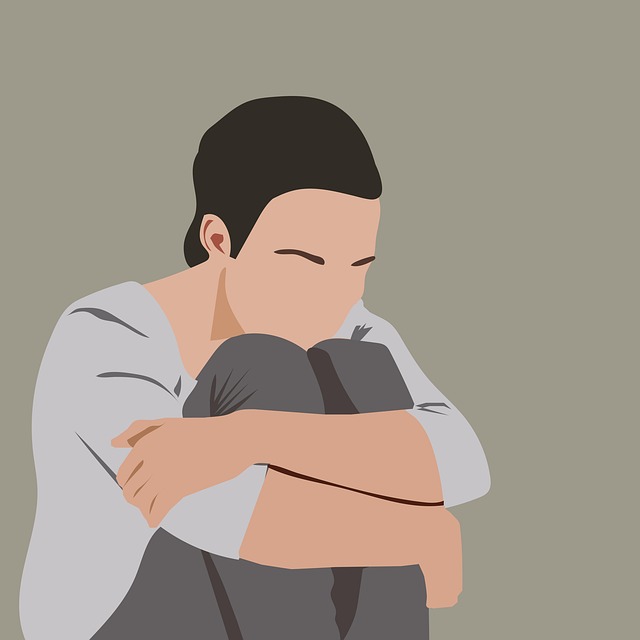Loss, grief, and bereavement significantly impact mental health, causing intense emotions like sadness, anger, and guilt. Castle Rock Divorce Therapy offers specialized services for navigating these complex issues through tailored trauma support and emotional intelligence training. Their nurturing environment promotes positive thinking, personal growth, and healing after loss or divorce, utilizing self-awareness exercises and open dialogue facilitated by trained therapists. By prioritizing self-care, including exercise, mindfulness, and social connections, individuals can effectively cope with grief and develop resilience while honoring their loved ones' memories.
Loss, grief, and bereavement are universal experiences that can profoundly impact individuals and relationships. This comprehensive guide explores these complex emotions, providing insights into their causes, effects, and coping mechanisms. From understanding the nuances of each phase to introducing therapeutic approaches like Castle Rock Divorce Therapy, which offers specialized support during separation, this article equips readers with knowledge and strategies for navigating loss. Discover self-care techniques to build resilience and heal.
- Understanding Loss, Grief, and Bereavement: A Comprehensive Overview
- The Impact of Loss on Individuals and Relationships
- Castle Rock Divorce Therapy: Navigating Separation with Support
- Therapeutic Approaches for Grieving Individuals
- Self-Care Strategies for Coping with Loss and Building Resilience
Understanding Loss, Grief, and Bereavement: A Comprehensive Overview

Loss, grief, and bereavement are deeply personal experiences that can significantly impact an individual’s mental health and well-being. Understanding these complex emotions is crucial for anyone seeking support or offering assistance during difficult times. Loss refers to the absence of someone or something cherished, whether it’s a death, divorce, or any other separation. Grief is the emotional response to loss, characterized by feelings of sorrow, anger, guilt, or loneliness. It’s a natural process that allows individuals to cope and eventually find meaning in their loss.
Bereavement, on the other hand, involves the period after a significant loss when individuals begin to adjust to their new reality. This process can be lengthy and unique for everyone, as it involves navigating through various stages of grief and developing coping strategies. Castle Rock Divorce Therapy offers specialized services for those dealing with these complex issues, providing a safe space for clients to explore their emotions, enhance their emotional intelligence, and access trauma support services tailored to their needs. A comprehensive understanding of loss, grief, and bereavement is essential, especially for mental health professionals who can facilitate healing through effective risk assessment methods and compassionate care.
The Impact of Loss on Individuals and Relationships

The impact of loss is profound and can significantly affect individuals and their relationships. When someone experiences the death of a loved one, or goes through a divorce, it’s common to feel overwhelmed by a range of intense emotions. This can include sadness, anger, guilt, and confusion, which may manifest in different ways. For instance, a person might find themselves withdrawing from social activities they once enjoyed, struggling to concentrate at work, or having difficulty sleeping. These changes can strain relationships with friends and family, creating a sense of isolation.
At Castle Rock Divorce Therapy, we recognize that these challenges are part of the healing process. Our Trauma Support Services are designed to help individuals navigate their emotions and rebuild their social skills through training in emotional intelligence. This holistic approach ensures that clients not only cope with their loss but also develop the tools to enhance their relationships and overall well-being.
Castle Rock Divorce Therapy: Navigating Separation with Support

In times of separation, whether it’s a divorce or a loss, Castle Rock Divorce Therapy offers a safe haven for individuals to navigate through their emotions. This therapy focuses on providing support and guidance during one of life’s most challenging periods, helping clients find strength in their vulnerability. By fostering self-awareness exercises, the process encourages positive thinking and promotes healthy coping mechanisms to prevent depression.
Through tailored sessions, therapists at Castle Rock Divorce Therapy assist individuals in understanding their feelings, processing difficult memories, and envisioning a future filled with hope. This supportive environment allows for open dialogue, ensuring clients feel heard and understood as they take steps towards healing and personal growth.
Therapeutic Approaches for Grieving Individuals

When it comes to addressing loss, grief, and bereavement, various therapeutic approaches have proven effective in helping individuals navigate their emotions and find healing. One such approach gaining traction is Castle Rock Divorce Therapy, which adapts traditional counseling techniques to suit unique needs of grievers. This method recognizes that each person’s journey through grief is distinct, and thus, offers tailored interventions.
Through Castle Rock Divorce Therapy, clients engage in open dialogue, often facilitated by trained therapists, to explore their feelings and experiences. The process encourages self-reflection and fosters a safe space for expression. Additionally, public awareness campaigns development and trauma support services play a crucial role in promoting healthy communication strategies among grievers, ensuring they receive the necessary emotional support during what can be an intensely challenging period.
Self-Care Strategies for Coping with Loss and Building Resilience

Grief is a powerful and often overwhelming process, but incorporating self-care strategies can significantly support individuals navigating loss, sorrow, and bereavement. At Castle Rock Divorce Therapy, we emphasize the importance of holistic healing, encouraging clients to prioritize their well-being during challenging times. Developing a robust self-care routine is an effective way to build mental resilience and foster personal growth following a significant loss.
This journey towards healing involves cultivating healthy habits such as engaging in regular physical activity, practicing mindfulness techniques, and maintaining a balanced diet. Additionally, fostering social connections through support groups or community outreach program implementations can provide a sense of belonging and alleviate feelings of isolation. By combining these self-care practices with professional counseling, individuals can develop positive thinking patterns, gain valuable coping mechanisms, and gradually rebuild their lives while honoring the memory of their loved ones.
Loss, grief, and bereavement are universal experiences that can profoundly impact individuals and relationships. In moments of deep sorrow, seeking support from professionals like those at Castle Rock Divorce Therapy can be transformative. By understanding the intricacies of these emotions, employing therapeutic approaches tailored to individual needs, and practicing effective self-care strategies, one can navigate challenging times with resilience. Remember, healing is possible, and with the right guidance, it’s a journey that fosters personal growth and renewed hope.








